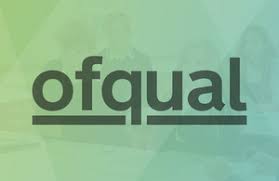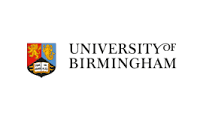Press release
The British Deaf Association (BDA) has welcomed today’s news confirming that pupils across the country will soon be able to take a British Sign Language (BSL) GCSE and implored the Department for Education (DfE) to invest in Deaf teachers to lead this initiative.
As the Government publishes subject content for the GCSE curriculum, we are calling on the DfE, on behalf of our members and the national community of people and organisations who care about the interests of BSL users across the United Kingdom, to seize this unique opportunity to develop the Deaf workforce and secure the future of this extraordinary language.
Founded in 1890, the BDA is the UK’s only official national representative organisation of BSL (and Irish Sign Language (ISL) used in Northern Ireland). As a Deaf-led membership organisation, we are recognised by the World Federation of the Deaf (a United Nations consultative organisation) and the European Union of the Deaf (a participatory member of the Council of Europe) as the sole legitimate voice of the BSL community. Our members are calling for urgent attention to protect the prospects of our language.
We are urging the Government to take steps to enable Deaf people to qualify as schoolteachers, addressing the extreme shortage of Deaf BSL teachers. This shortage is putting at risk the viability and validity of the BSL GCSE which, after many years of campaigning, is due to launch in September 2025. Without appropriate BSL teaching, the future of our linguistic community is made vulnerable.
Rebecca Mansell, BDA Chief Executive Officer, said “Parliament did an extraordinary thing in 2022. It passed a BSL Act. We at the BDA have been asking for recognition of our language since 1890. After 132 years, our Parliament listened. However, there are serious risks ahead.
BSL is neither easy to learn nor to teach. Its grammar is constructed with features shared by no spoken language. Learners are challenged to overcome a lifetime of habits of thought to express themselves and to engage open-mindedly with what it means to be Deaf. Teachers must guide them sensitively along this cognitively and socially transformative journey.
In this context, our education system will show its respect for BSL by ensuring that this richly complex language is taught well by people who sign fluently and can present knowledge about Deaf lives from a basis of credible experience. Deaf people must be at the centre of this picture.”
Doing the right thing by Deaf people was the whole point of the BSL Act. Deaf people have been relegated to the margins for generations: the aim of the Act was to bring a stop to this.
The BDA is therefore calling on the Government to take the following actions:
- Work with the BDA to establish a workforce plan that respects and protects the linguistic integrity of BSL, the effective acquisition of the language by learners, and the lived expertise of Deaf people as teachers.
- Make comprehensive provision in the plan for Deaf teachers to be employed to lead the delivery of BSL as a school subject nationwide, beginning in 2025 and on a securely sustained basis thereafter.
- Identify and provide resources to facilitate schools’ contractual engagement of Deaf BSL teachers with appropriate skills, ensure the availability and accessibility of appropriate professional development opportunities, and establish tailored pathways to the qualifications required for long-term employability and advancement.
Dani Sive, Headteacher of Frank Barnes School for Deaf Children in London, which launched a BSL curriculum for primary and secondary school earlier this month agrees with the BDA’s promotion of Deaf teachers. “The impact of the BSL GCSE could be absolutely incredible. Every year, thousands of young people who study BSL will join the workforce equipped to build bridges between Deaf and hearing people. Deaf young people will walk tall into adulthood within a society that understands them like never before.
In order to achieve this, career pathways must open for Deaf teachers to be recognised as the undisputed experts in the field. It is vital that we utilise these experts in delivering the new BSL GCSE curriculum to ensure it truly reflects the history, culture, identity and language of the Deaf and BSL community.
Emma Iliffe, Chair of the Association of BSL Teachers (ABSLTA) said “There are hundreds of BSL Teachers across the country with BSL skills and experiences. Thousands more deaf people have the potential to become BSL teachers. BSL is the fourth most popular adult education subject. However, most deaf people haven’t been given the opportunity, support or funding to acquire PGCE or equivalent qualifications to teach in a secondary school.
Many Deaf people have never been given the chance BSL in school itself, and we often have to pay thousands of pounds in adult education course fees to learn our own language.
First and foremost, it should be deaf people themselves who teach sign language – as it is our language. Deaf people know the ‘culture’ around sign and can include that in the lessons. But we need urgently greater funding support to enable this to happen.”
The BDA is excited that at long last our language, BSL, is gaining visibility. We now have an Act of Parliament, passed in 2022, in support of our language; we have the BSL Advisory Board, established to guide Government action. There is a sense of real momentum and ambition to take BSL forward.
In 2022, the Government did the right thing by legislating for the promotion and protection of BSL. Now it is crucial that steps are taken swiftly and decisively to strengthen Deaf-led BSL teaching so that the point of the BSL Act is not undermined.”



